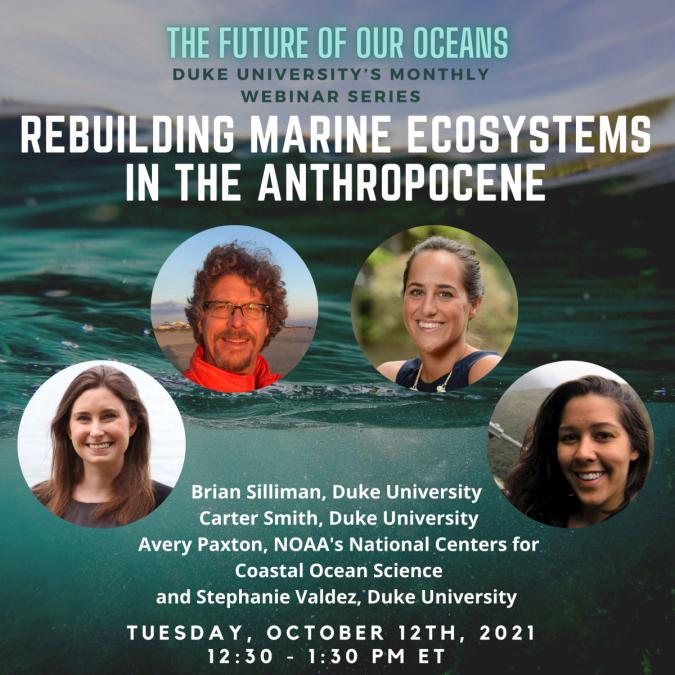About
Habitat restoration is now being championed as a scalable strategy to reverse global habitat declines. For restoration to answer society’s challenge, its efficiency and yields must steeply escalate. We must rethink what ecosystems will look like as rates of animal and plant migration escalate due to global warming and as the paradigm of nature conservation shifts from segregation to co-existence. Here, marine coastal systems, in particular those in North Carolina, are used as a model to begin the conversation of what a restored coastal seascape future might look like, highlighting simple changes that massively increase restoration efficiency, large-scale incorporation of hybrid, novel and artificial ecosystems, and key steps we must make to elevate restoration from a minor to a major league player on the marine conservation tools team. To facilitate the Nicholas School's role in this movement, a university-wide initiative called Duke RESTORE has been formed to focus on creatively rebuilding ecosystems for people and nature.
This Oceans @ Duke panel discussion will include experts in the ecosystem restoration, who will provide insights into vital questions related to this topic.


